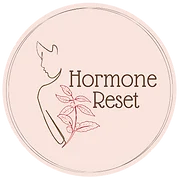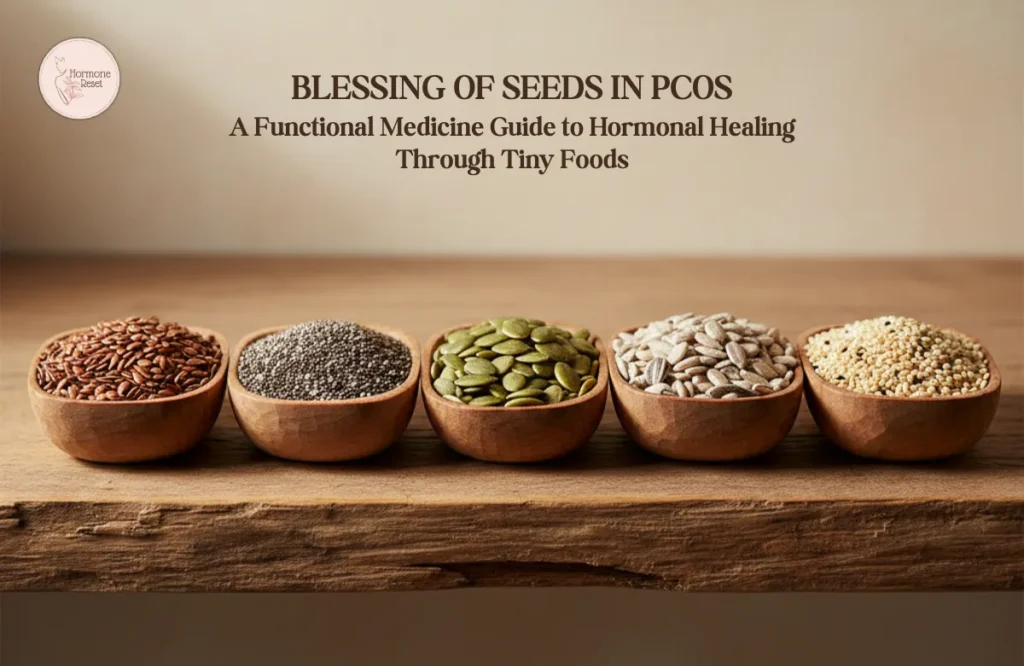Autoimmune diseases are on the increase, and conditions such as Graves’ disease and Hashimoto’s thyroiditis are two of the most prevalent. Autoimmune diseases usually remain undiagnosed until they are fairly advanced, resulting in major health problems. Early detection can help avert complications, enhance well-being, and return hormones to a balance.
We’ll explore how to diagnose early, how early diagnosis can make a difference, how functional medicine helps treat these conditions, and why hormone reset strategies play a vital role in restoring thyroid function. Functional medicine doesn’t just manage symptoms—it offers a path to true healing and recovery.
What is the Thyroid and Why Does it Matter?
The thyroid gland, lovingly located in our neck, serves a very important function by secreting hormones that assist us in controlling our metabolism, energy levels, and general health. This tiny powerhouse influences almost every organ in our body, regulating all bodily functions including:
- Metabolism and weight
- Heart rate and blood pressure
- Digestion and gut health
- Brain function and mood
- Reproductive health and fertility
- Immune function
When the immune system mistakenly attacks the thyroid, it can cause:
The Two Major Autoimmune Thyroid Disorders
- Graves’ Disease – This causes excess thyroid hormone (hyperthyroidism), weight loss, nervousness, a racing heart, and protruding eyes, etc.
- Hashimoto’s Thyroiditis – This causes insufficient thyroid hormone (hypothyroidism), causing fatigue, weight gain, depression, and mental fogginess.
Why Early Diagnosis is Important
Many people overlook thyroid issues because symptoms often resemble stress or ageing. Early detection of these conditions is vital for several reasons:
1. Preventing Serious Health Problems
- Graves’ disease, if left untreated, can lead to thyroid storm, a potentially fatal condition with high fever and tachycardia.
- Hashimoto’s may result in myxedema, a severe manifestation of hypothyroidism leading to coma and possible death.
- Both of these conditions increase the risk of heart disease, infertility, and osteoporosis.
2. Improving Daily Life
- Spotting these issues early means you can find relief from exhaustion, mood swings, and brain fog much quicker.
- With the right treatment, you can enjoy a steady weight, renewed energy, and sharper mental clarity.
3. Avoiding Lifelong Medication
- A lot of people rely on medications throughout their lives, sometimes forgetting to address the root issues that could help them feel even better.
- Functional medicine helps uncover natural ways to support the thyroid and, in many cases, can even turn the condition around completely.
Also Read: A Comprehensive Guide to Managing Hashimoto’s with Functional Medicine
How to Diagnose Autoimmune Thyroid Disease Early

Early detection of autoimmune-mediated thyroid dysfunction is very important to be able to prevent the various conditions mentioned above. To ensure early diagnosis we need to test for the three antibodies mentioned below:
- Anti Thyroglubulin Antibody (Anti TG): ATG attacks and destroys a protein known as thyroglobulin which is needed for thryoid hormone synthesis. This leads to hypothyroidism also known as hashimoto’s. This antibody is often present years before any symptoms appear or the thyroid numbers go out of range.
- Anti Thyroid Peroxidase (Anti TPO): Anti TPO, also known as AMA, destroys an enzyme called thyroid peroxidase. Without this enzyme the thryoid gland cannot product enough thyroid hormones leading to hypothyroidism or hashimoto’s.
- Thyroid Receptor Antibody (TSI): TSI mimics the TSH hormone (TSH or thyroid stimulating hormone is secreted by the pituitary gland to stimulate the thyroid) and over-activates the thyroid gland leading to excessive production of thyroid hormones leading to hyperthyroidism of grave’s disease.
Anti TG and Anti TPO can often be detected in the blood years (sometimes even 10-20 years) in advance of any symptoms or even other thyroid numbers going out of range!
TSI can also be detected months in advance of any other symptoms and test results.
A Functional Medicine Approach To Thyroid Health
Unlike conventional medicine which tends to focus on treating symptoms, functional medicine is a different approach in that it reveals and treats the underlying causes of illness. This approach empowers the body to heal itself naturally and efficiently.
How Functional Medicine Helps:
Comprehensive Testing
Standard tests may miss early thyroid issues. Functional medicine checks:
- TSH, Free T3, Free T4, Reverse T3
- Thyroid antibodies (TPO, TG, TSI)
- Vitamin and mineral levels (iodine, selenium, zinc, vitamin D, iron)
- Gut health markers and inflammation levels
- Toxins that often interfere with thyroid function
Finding the Root Cause
Common triggers include:
- Gluten intolerance (linked to Hashimoto’s)
- Chronic stress (raises cortisol, which affects the thyroid)
- Nutrient deficiencies (iodine, selenium, iron, and zinc are essential)
- Gut problems (a healthy gut supports a strong immune system)
- Toxin exposure (chemicals in plastics and cosmetics harm the thyroid)
Functional Medicine Strategies
Based on Hormone Reset, balancing hormones naturally is key. This includes:
- Eating the right foods – Reducing inflammation and boosting thyroid health.
- Managing stress – Meditation, breathing exercises, and herbal support.
- Healing the gut – Probiotics, fibre, and anti-inflammatory diets help.
- Using targeted supplements – Selenium, magnesium, omega-3s, and B vitamins support the thyroid.
Natural Ways to Support Thyroid Health

Lifestyle changes can help manage and even reverse thyroid issues.
1. Eating for a Healthy Thyroid
Nutrient-rich foods:
- A few great sources of selenium include Brazil nuts, tuna, and sunflower seeds.
- If you’re looking for iodine, consider incorporating seaweed, iodized salt, and fish into your meals.
- For zinc, pumpkin seeds, chickpeas, and beef are excellent choices.
- And don’t forget about anti-inflammatory foods like turmeric, ginger, and a variety of green vegetables!
Avoid problem foods: Gluten, dairy products, sugar, and processed foods can trigger autoimmune reactions.
2. Managing Stress
Stress can make thyroid problems worse.
Try:
- Engaging in regular exercise, finding peace through meditation, and practising deep breathing can truly nourish your well-being.
- Journaling and seeking therapy offer wonderful emotional support, providing a safe space for reflection.
- Exploring herbal adaptogens like ashwagandha and rhodiola is a lovely way to enhance your resilience and overall wellness.
An important way these practices help is by strengthening and activating the parasympathetic nervous system, which in turn balances the immune system and other functions in the body. For true healing to occur, especially from autoimmune disorders, activation of the parasympathetic nervous system is of paramount importance.
3. Improving Gut Health
- A thriving gut is essential for our immune system, as it plays a big role in keeping inflammation at bay.
- To support your gut health, consider enjoying fermented foods, savoring fiber-rich vegetables, and incorporating probiotics into your routine!
4. Address Chronic Infections
Chronic infections can be understood as overgrowths of bacteria, fungus, viruses and parasites in the body. Any chronic overgrowth naturally alarms the immune system into becomng over-reactive. A few well known mechanisms are:
- Pathogens share structural similarities with self-antigens, leading the immune system to mistakenly attack the body’s own tissues. Example: Epstein-Barr virus (EBV) and Hashimoto’s thyroiditis.
- Chronic infections cause persistent inflammation, triggering non-specific immune activation and tissue damage. This can lead to the release of hidden self-antigens, promoting autoimmunity.
- Overgrowth of pathogenic bacteria, fungi (Candida), and parasites disrupts gut barrier integrity, allowing undigested proteins and microbial toxins to enter circulation (intestinal permeability). This stimulates an abnormal immune response and cross-reactivity with body tissues.
- Certain viruses (like EBV, CMV, and HHV-6) can remain latent in the body, continuously triggering the immune system and driving chronic autoimmune responses
5. Reducing Toxins
Environmental toxins, including heavy metals (mercury, lead, arsenic), pesticides, industrial chemicals, and air pollutants, can trigger autoimmune diseases through several mechanisms:
- Some toxins mimic self-antigens, leading to immune confusion and attacking the body’s own tissues. Example: Mercury can trigger immune responses similar to those seen in autoimmune thyroid disease.
- Toxins cause oxidative stress, DNA damage, and chronic inflammation, which can break down immune tolerance and lead to autoimmunity.
- Heavy metals and chemicals can damage the intestinal lining, allowing undigested proteins and toxins into circulation, triggering an immune response. Example: Glyphosate in pesticides is linked to increased intestinal permeability and autoimmune diseases.
- Overburdened liver detoxification (due to high toxin exposure) can lead to the accumulation of toxins, worsening immune dysfunction and inflammation.
- Chronic toxin exposure can alter gene expression (without changing DNA), increasing susceptibility to autoimmune diseases like lupus, MS, and rheumatoid arthritis.
Hence it is essential to pay attention to all potential sources of toxins and reduce the exposure.
Take Charge of Your Thyroid Health
Living with thyroid disease doesn’t have to be the whole story of your life! When you catch it early and take the right steps, there’s a real chance to feel so much better. Functional medicine isn’t just about alleviating symptoms; it’s about discovering genuine pathways to recovery. By addressing the root causes through a nourishing diet, managing stress, and embracing personalized nutrition, many have found success in overcoming their thyroid challenges, leading to a boost in energy, metabolism, and overall well-being.
If you’re noticing symptoms of Hashimoto’s or Graves’ disease, don’t wait—take the step to get tested and start your journey to recovery today!
References
- Cao J, Wang N, Luo Y, et al. A cause-effect relationship between Graves’ disease and the gut microbiome contributes to the thyroid-gut axis: a bidirectional two-sample Mendelian randomization study. Front Immunol. 2023;14:977587.
- Wyne KL, Nair L, Schneiderman CP, et al. Hypothyroidism prevalence in the United States: a retrospective study combining National Health and Nutrition Examination Survey and claims data, 2009-2019. J Endocr Soc. 2022;7(1):bvac172.
- Yuan S, Du X, Liu H, et al. Association between bisphenol A exposure and thyroid dysfunction in adults: a systematic review and meta-analysis. Toxicol Ind Health. 2023;39(4):188-203.
- Gorini F, Bustaffa E, Coi A, Iervasi G, Bianchi F. Bisphenols as environmental triggers of thyroid dysfunction: clues and evidence. Int J Environ Res Public Health. 2020;17(8):2654.
- Toloza FJK, Mao Y, Menon LP, et al. Association of thyroid function with posttraumatic stress disorder: a systematic review and meta-analysis. Endocr Pract. 2020;26(10):1173-1185.
- Razvi S, Bhana S, Mrabeti S. Challenges in interpreting thyroid stimulating hormone results in the diagnosis of thyroid dysfunction. J Thyroid Res. 2019;2019:4106816.
- Iwen KA, Schröder E, Brabant G. Thyroid hormones and the metabolic syndrome. Eur Thyroid J. 2013 Jun;2(2):83-92. doi: 10.1159/000351249. Epub 2013 May 28.
- Gontarz-Nowak K, Szklarz M, Szychlińska M, Matuszewski W, Bandurska-Stankiewicz E. A Brief Look at Hashimoto’s Disease, Adrenal Incidentalomas, Obesity and Insulin Resistance-Could Endocrine Disruptors Be the Other Side of the Same Coin? Medicina (Kaunas). 2023 Jun 30;59(7):1234. doi: 10.3390/medicina59071234.
- Hasham A, Tomer Y. Genetic and epigenetic mechanisms in thyroid autoimmunity. Immunol Res. 2012 Dec;54(1-3):204-13. doi: 10.1007/s12026-012-8302-x.
- Coppedè F. Epigenetics and Autoimmune Thyroid Diseases. Front Endocrinol (Lausanne). 2017 Jun 29;8:149. doi: 10.3389/fendo.2017.00149.
Share





Leave a Reply